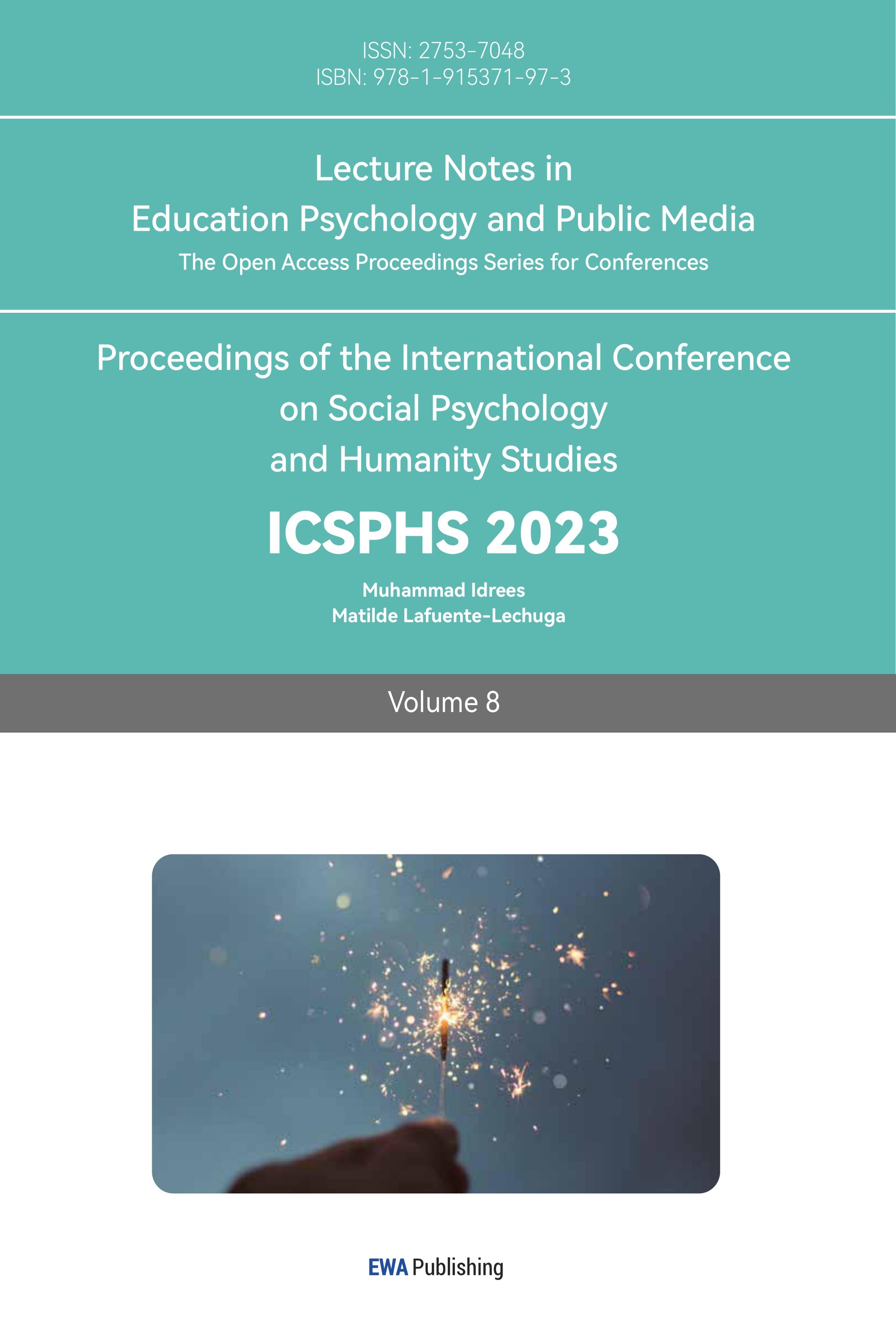References
[1]. Stueck William, (1993) Rethinking the Korean War: A new Diplomatic and Strategic History, Princeton University Press, pp.73-83.
[2]. Jun N., (2018) Lenyzhan Shidaide Zhongguo Zhanlue Juece Chinese Communist Strategic Decisions in the Cold War Era, World Affairs Press Co. Ltd, pp.114-121.
[3]. Jian C., (2001) Mao's China and the Cold War, Univ of North Carolina Press, pp.87.
[4]. Wilson Center, COLD WAR INTERNATIONAL HISTORY PROJECT BULLETIN 2, 1995.
[5]. Notes of the Conversation between Comrade I.V. Stalin and a Governmental Delegation from the Democratic People's Republic of Korea headed by Kim Il Sung (1949) History and Public Policy Program Digital Archive, March 5.
[6]. NYT, Stueck, William. (1947) Rethinking the Korean War: A New Diplomatic and Strategic History, January 24 and 29, 70.
[7]. Telegram from Gromyko to Tunkin at the Soviet Embassy in Pyongyang, (1949) History and Public Policy Program Digital Archive, September 11.
[8]. Politburo Decision to Confirm the Following Directive to the Soviet Ambassador in Korea, (1949) History and Public Policy Program Digital Archive, September 24.
[9]. Cable Telegram no. 20475 from Gromyko to Kovalev, (1949) History and Public Policy Program Digital Archive, November 05.
[10]. Dean Acheson's 'Perimeter Speech' on Asia (1950) Alpha History, https://alphahistory.com/.
[11]. Ciphered Telegram, Roshchin to Cde. Filippov [Stalin] (1950) History and Public Policy Program Digital Archive, Russian Presidential Archives. Given by Russian President Boris Yeltsin to South Korean President Kim Young-Sam in Moscow, June.
[12]. Joungwon A. Kim (1975), Divided Korea: the politics of development, 1945-1972, Harvard University Asia Center, pp.78.
[13]. FRUS, (1950), Korea, Volume VII Document 25, 573, 648.
[14]. Central Documentary Research Office of the Communist Party of China, Selected Military Writings of Zhou Enlai, Beijing People's Press, pp.67-68.
[15]. Jun, Niu. (1991)The change of the US policies towards Korean War,1950.6-1951.6, the US Studies, Issue 1, pp.93-115.
Cite this article
Lai,F. (2023). The Origins and the Escalation of the Korean War in 1950. Lecture Notes in Education Psychology and Public Media,8,186-190.
Data availability
The datasets used and/or analyzed during the current study will be available from the authors upon reasonable request.
Disclaimer/Publisher's Note
The statements, opinions and data contained in all publications are solely those of the individual author(s) and contributor(s) and not of EWA Publishing and/or the editor(s). EWA Publishing and/or the editor(s) disclaim responsibility for any injury to people or property resulting from any ideas, methods, instructions or products referred to in the content.
About volume
Volume title: Proceedings of the International Conference on Social Psychology and Humanity Studies
© 2024 by the author(s). Licensee EWA Publishing, Oxford, UK. This article is an open access article distributed under the terms and
conditions of the Creative Commons Attribution (CC BY) license. Authors who
publish this series agree to the following terms:
1. Authors retain copyright and grant the series right of first publication with the work simultaneously licensed under a Creative Commons
Attribution License that allows others to share the work with an acknowledgment of the work's authorship and initial publication in this
series.
2. Authors are able to enter into separate, additional contractual arrangements for the non-exclusive distribution of the series's published
version of the work (e.g., post it to an institutional repository or publish it in a book), with an acknowledgment of its initial
publication in this series.
3. Authors are permitted and encouraged to post their work online (e.g., in institutional repositories or on their website) prior to and
during the submission process, as it can lead to productive exchanges, as well as earlier and greater citation of published work (See
Open access policy for details).
References
[1]. Stueck William, (1993) Rethinking the Korean War: A new Diplomatic and Strategic History, Princeton University Press, pp.73-83.
[2]. Jun N., (2018) Lenyzhan Shidaide Zhongguo Zhanlue Juece Chinese Communist Strategic Decisions in the Cold War Era, World Affairs Press Co. Ltd, pp.114-121.
[3]. Jian C., (2001) Mao's China and the Cold War, Univ of North Carolina Press, pp.87.
[4]. Wilson Center, COLD WAR INTERNATIONAL HISTORY PROJECT BULLETIN 2, 1995.
[5]. Notes of the Conversation between Comrade I.V. Stalin and a Governmental Delegation from the Democratic People's Republic of Korea headed by Kim Il Sung (1949) History and Public Policy Program Digital Archive, March 5.
[6]. NYT, Stueck, William. (1947) Rethinking the Korean War: A New Diplomatic and Strategic History, January 24 and 29, 70.
[7]. Telegram from Gromyko to Tunkin at the Soviet Embassy in Pyongyang, (1949) History and Public Policy Program Digital Archive, September 11.
[8]. Politburo Decision to Confirm the Following Directive to the Soviet Ambassador in Korea, (1949) History and Public Policy Program Digital Archive, September 24.
[9]. Cable Telegram no. 20475 from Gromyko to Kovalev, (1949) History and Public Policy Program Digital Archive, November 05.
[10]. Dean Acheson's 'Perimeter Speech' on Asia (1950) Alpha History, https://alphahistory.com/.
[11]. Ciphered Telegram, Roshchin to Cde. Filippov [Stalin] (1950) History and Public Policy Program Digital Archive, Russian Presidential Archives. Given by Russian President Boris Yeltsin to South Korean President Kim Young-Sam in Moscow, June.
[12]. Joungwon A. Kim (1975), Divided Korea: the politics of development, 1945-1972, Harvard University Asia Center, pp.78.
[13]. FRUS, (1950), Korea, Volume VII Document 25, 573, 648.
[14]. Central Documentary Research Office of the Communist Party of China, Selected Military Writings of Zhou Enlai, Beijing People's Press, pp.67-68.
[15]. Jun, Niu. (1991)The change of the US policies towards Korean War,1950.6-1951.6, the US Studies, Issue 1, pp.93-115.









